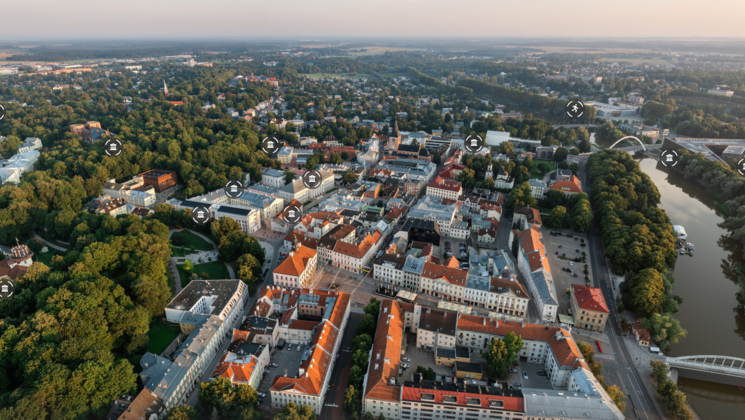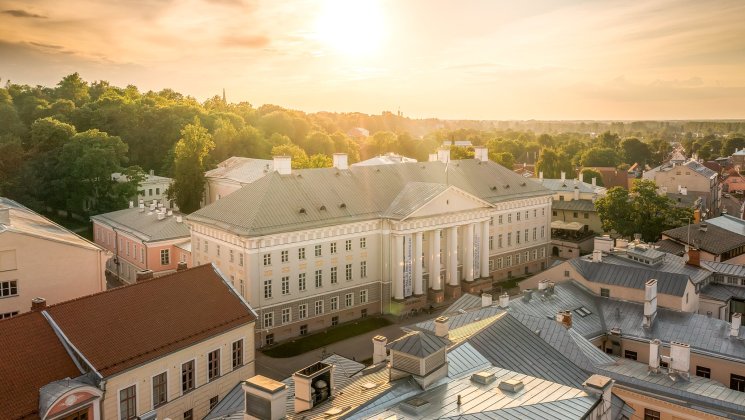Government introduced restrictions concerning students who are Russian citizens

On 30 July, an amendment to the regulation of the Government of the Republic came into force, restricting Russian citizens from applying for temporary residence permits or visas for studying in Estonia. Previously, the same regulation had also restricted the citizens of Russia and Belarus from obtaining a temporary residence permit or a visa for employment or business activity in Estonia.
Russian citizens studying at the university
According to the amended regulation, from 30 July, the Police and Border Guard Board no longer issues visas or temporary residence permits for study to citizens of the Russian Federation. The regulation applies to all Russian citizens in bachelor's, master's and doctoral studies, including those who have completed their bachelor's or master's degree in Estonia and wish to continue their studies here.
As an exception, the residence permits of students who are due to complete their studies at an Estonian institution of higher education will be extended for one year. The extension does not apply automatically: students must apply for the extension at the Police and Border Guard Board. If the student has already submitted the application for extension, but not received a decision yet, the decision will be taken after 18 August.
As at 1 August, 218 Russian citizens study at the University of Tartu. International students who have a legal basis for staying in Estonia – a long-stay visa, a residence permit for study or a 270-day right to stay in Estonia after the expiry of the period of validity of the temporary residence permit – can stay in Estonia until the expiry of this legal basis. Those who hold a residence permit for employment can apply for an extension of the residence permit.
All Russian citizens studying at the university whose legal basis for staying in Estonia is due to expire soon (in August or September) but whose studies will not be completed by then are advised to contact the programme director or academic affairs specialist of their curriculum as well as the Study Abroad Centre (studentvisasupport@ut.ee) to discuss the possibilities for completing their studies.
Russian citizens in doctoral studies
For the purposes of the regulation, doctoral students are also considered students and the restrictions apply to those citizens of the Russian Federation who have applied for a visa or residence permit for study. Doctoral students who were admitted to doctoral studies in 2022 and hold a residence permit for employment in Estonia issued before 30 July can apply for an extension of the residence permit. Doctoral students who have a residence permit for study cannot apply for a new residence permit for study or employment after it expires. This year, 12 Russian nationals were admitted to doctoral studies to the junior research fellow's position. If they received a positive reply to their residence permit application before 30 July, they will be able to start their studies in the autumn.
Employees who are citizens of Russia or Belarus
In particular, the regulation concerns employees who are citizens of Russia or Belarus and currently hold a residence permit or visa for study. They will not be able to apply for a residence permit for employment after this residence permit or visa expires. Similarly, citizens of Russia and Belarus registered for short-term employment in Estonia can no longer apply for a residence permit for employment.
In addition, according to the amended regulation, short-term employment of Russian and Belarusian citizens can only be registered in Estonia if they hold a valid visa issued by Estonia. This means that the short-term employment of citizens of Russia and Belarus who have a legal basis for staying in the country issued by another EU member state will no longer be registered, and therefore they will not be able to apply for a long-term visa for short-term employment.
The regulation does not apply to citizens of Russia and Belarus who apply for the extension of a temporary residence permit for employment or business activity, nor to those who hold such a permit and take up employment with another employer. It also does not apply to citizens of Belarus who have a legal basis for staying in Estonia and apply for a temporary residence permit to work in a post in the field of speciality of information and communication technology.
For questions related to employees, please contact the personnel management specialist of your unit.






